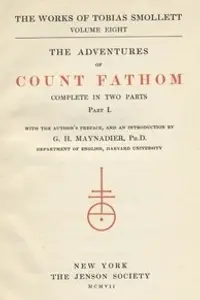Summary
In The Adventures of Ferdinand Count Fathom, Tobias Smollett delivers a biting and darkly comic tale of vice, manipulation, and moral corruption, following one of the most unrepentant antiheroes in 18th-century literature.
Born the son of a deceitful fortune-teller, Ferdinand Count Fathom is raised to be a scoundrel—and he takes to the role with gleeful ambition. Gifted with charm, cunning, and an utter lack of conscience, Fathom moves through European society deceiving, swindling, and betraying everyone he meets.
From military camps to aristocratic circles, he manipulates those around him with practiced ease, always placing personal gain above loyalty or morality.
But as Fathom climbs the social ladder, his lies begin to catch up with him.
His downfall is as inevitable as it is richly deserved, serving as a grim mirror to a society obsessed with wealth, status, and appearances.
Published in 1753, Ferdinand Count Fathom is one of Smollett’s most experimental and morally intense works.
Departing from the more humorous tone of his earlier novels, this picaresque story explores the psychology of a villain in detail rarely seen at the time. It’s a satire of European decadence, a study of criminality, and a cautionary tale about the emptiness of ambition divorced from virtue.
